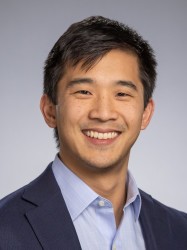Advanced Optimization and Modeling Tools Workshop
Note that this workshop runs in parallel with this several workshops. Only
one of them can be selected
Workshop Date: Sunday 2nd of June.
Workshop Starting Time: 10:00 AM.
Participants Limit: 60.
Registrations Deadline: Monday 27 May 2024.
Workshop Coordinator: Prof Carl Laid, Carnegie Mellon University
Hands-on with OMLT:
The Optimization and Machine Learning Toolkit
Presented by: Carl D. Laird, Chemical Engineering
Department, Carnegie Mellon University, Pittsburgh
Calvin Tsay, Department of Computing, Imperial College, London
OMLT is developed in collaboration with the Misener and Tsay groups (Imperial
College), Sandia
National Laboratories, and CMU.
Ceccon, F., Jalving, J., Haddad, J., Thebelt, A., Tsay, C., Laird, C. D., &
Misener, R. (2022). OMLT:
Optimization & machine learning toolkit. The Journal of Machine Learning
Research, 23(1),
15829-15836.
Machine learning (ML) models are being increasingly used as surrogates for complex
processes within science and engineering applications.
While most ML software is focused on training and forward evaluation
of ML models, there is a need to solve the “inverse” problem –
that is, given an objective and constraints that depend on the outputs, can
we solve for the best values of the
inputs.
The Optimization and Machine Learning Toolkit (OMLT) integrates
trained ML models (e.g., neural networks, decision trees) within the optimization
package, Pyomo, supporting the use of ML surrogates within optimization applications[1].
In this hands-on tutorial, we will discuss the OMLT package and applications
of optimization with machine learning surrogates. Using Jupyter notebooks and
other Python exercises, we will provide hands-on experience with the tools.
We will demonstrate several applications of the OMLT framework, including surrogate-based
optimization and stochastic programming.

Carl D. Laird is Professor and Interim Head in the Department of Chemical
Engineering at Carnegie Mellon University.
His research focuses on large-scale nonlinear optimization and discrete optimization with applications in process and energy systems, manufacturing, homeland security, and large-scale infectious disease spread.

Calvin Tsay is a Lecturer (US Assistant Professor) in the Computational Optimisation Group (COG) within the Department of Computing, supported by an EPSRC David Clarke Fellowship.
His research interests are in the areas of optimisation algorithms, process dynamics/control, optimisation for machine learning, and process systems engineering.
